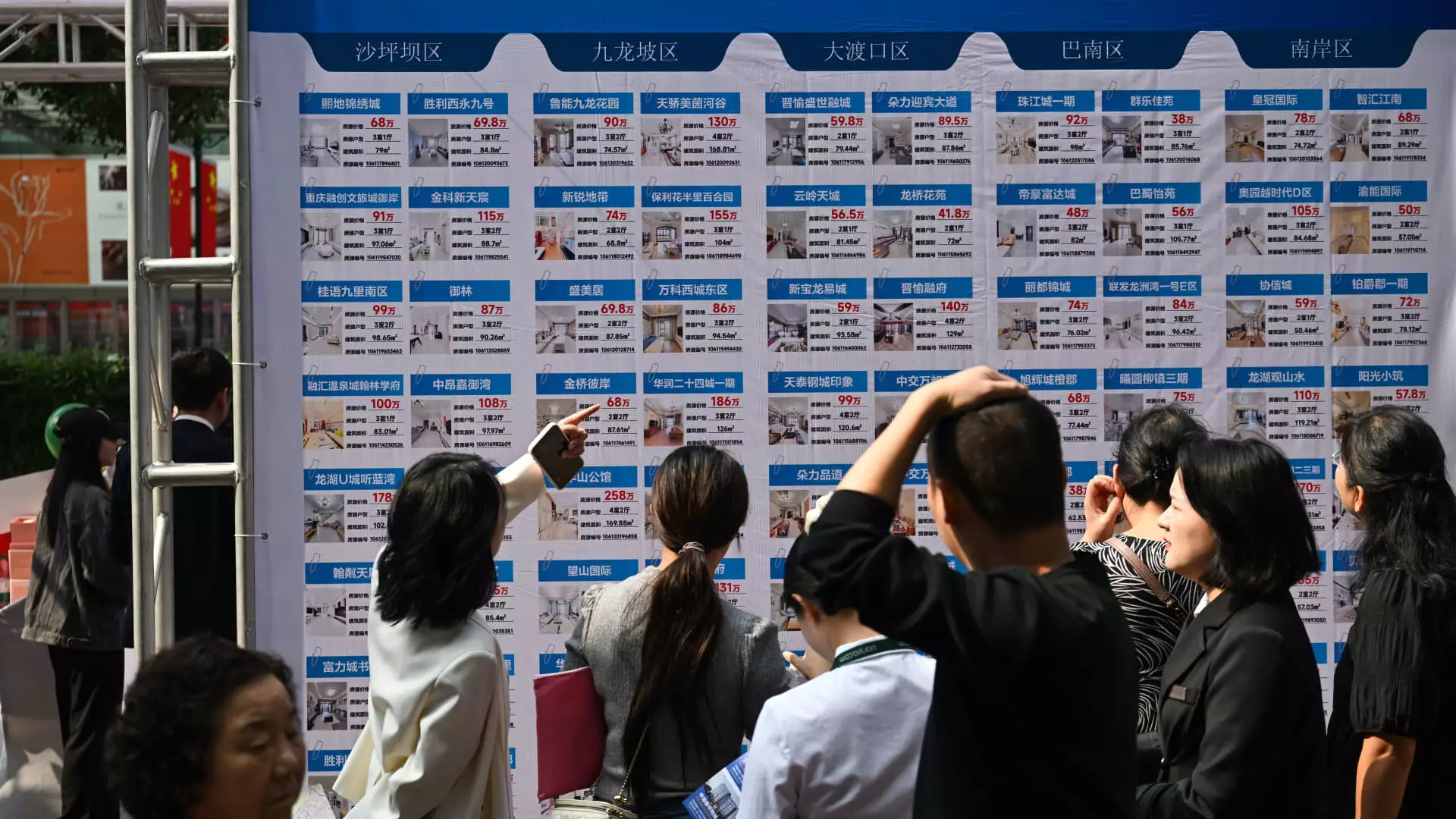Amidst the ongoing real estate downturn in China, property developers are grappling with new market dynamics, yet some firms are showcasing remarkable resilience. One notable player is KE Holdings, also known as Beike, which operates the popular Lianjia platform designed for apartment transactions. Although the broader property market may be experiencing a decline, KE Holdings has captured attention due to its impressive performance in 2024, coupled with a plethora of strategic initiatives aimed at leveraging emerging opportunities.
While the main property development giants in China are assessing their positions in a challenging landscape, KE Holdings has managed to stand out. Listed in the United States under the ticker “BEKE,” as well as trading on the Hong Kong stock exchange, the company has seen its U.S.-listed stock gain 38% in 2024. By contrast, an index representing Chinese property stocks in Hong Kong struggled, increasing by less than 3% over the same time frame. This stark difference in performance is indicative of how KE Holdings has adopted a multifaceted approach, allowing it to remain buoyant while many of its peers face dire straits.
Analysts, particularly those at Jefferies, hold a positive outlook on KE Holdings. They anticipate that both new and existing home transactions will benefit from government incentives aimed at stimulating the housing market. These transactions come alongside the company’s expansion into renovation services, home rentals, and facilitating connections between consumers and contractors. Jefferies rates the stock a “buy” with a price target of $30, projecting a potential upside of about 34% from its recent trading position. This position reflects both confidence in the firm’s market strategies and acknowledgment of its robust business model amidst adversity.
In late September, Chinese President Xi Jinping underscored the government’s commitment to reversing the real estate market’s sluggishness, proposing measures to support recovery. This announcement coincided with the People’s Bank of China’s decision to lower rates for existing mortgage holders, further generating optimism within the sector. Additionally, the easing of home purchase restrictions in major cities, including Beijing, has contributed to a surge in real estate transactions, particularly during the recent holiday period.
Despite these positive indicators, there are rampant uncertainties lurking in the shadows. Analysts caution that while new home sales showed signs of life, the overall recovery trajectory for China’s property market could be prolonged. Richard Tang of Julius Baer emphasized a cautious approach, suggesting that investors should take advantage of current market strength to reevaluate their exposure to property stocks. This sentiment reinforces the notion that market realities are shifting, and investors need to be strategic and astute in navigating this evolving landscape.
Market analysts are consistently evaluating the sustainability of property prices and buyer sentiment going forward. Insights gleaned from discussions with industry experts reveal predictions of a potential 10% drop in home prices before stabilization is achieved. Notably, this perspective highlights the inherent volatility faced by stakeholders in the real estate sector.
Bank of America Securities noted that a substantial part of KE Holdings’ market operations rely on established connections with various property agency chains. The firm commands a significant market share in both existing and new home brokerage channels, indicating its strategic positioning to capitalize on the new buyer landscape. However, concerns about sustainable growth linger among analysts, prompting a neutral rating despite adjusting price targets to $24.
Looking ahead, analysts from Goldman Sachs have raised expectations for the inclusion of KE Holdings in an investment program that permits mainland investors to acquire Hong Kong-listed shares. Given that key urban centers substantially contribute to KE’s transaction volume, the firm stands to gain substantially from recent policy shifts designed to invigorate the housing market.
As KE Holdings continues to navigate the intricacies of the shifting real estate landscape, it maintains a healthy balance sheet with considerable cash reserves. The company’s commitment to shareholder returns through buybacks and dividends positions it favorably within a market that demands resilience and innovation.
The future indeed appears bright for KE Holdings, particularly as it continues to forge ahead in a complex marketplace filled with inherent risks and opportunities. Whether this momentum can persist and translate into long-term stability and growth remains an open question. However, for now, the company exemplifies a noteworthy case study of resilience and strategic adaptability within China’s property sector.

